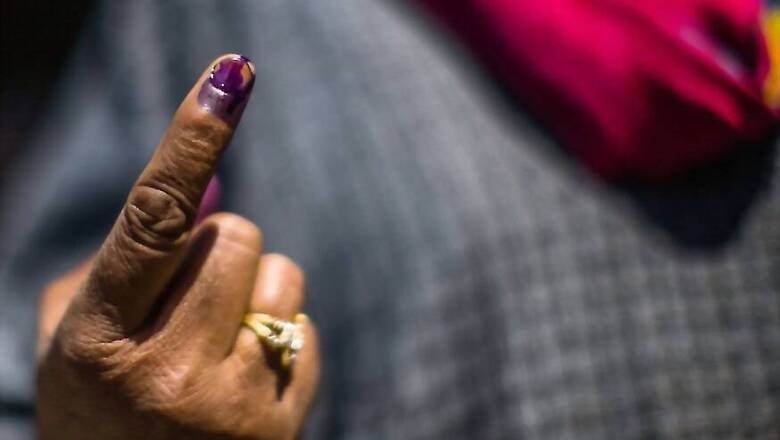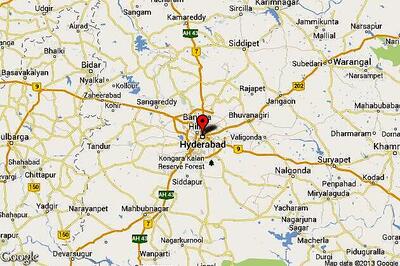
views
New Delhi: Simultaneous elections may not be a distant agenda anymore as officials from Law Commission of India and Election Commission would be meeting on May 16 to discuss constitutional, social, economic and political aspects of the move.
This comes just days after News18 carried the story that a report containing 20 questions would be on the table for discussion between the two bodies.
The question in the internal note, sent by the Law Commission to the EC, has been divided into two parts — first on Constitutional issues and the second on legal, social, political and economic issues.
On Constitutional issues, the Law Commission has sought to know whether the “benefits of simultaneous elections” would inevitably be viewed as “tinkering with the basic structure of the Constitution” as it would invite certain amendments.
Further, the panel has asked if a possible President’s rule in states with dissolved Assemblies would see an impact on its democratic functioning.
A few weeks ago, the Law Commission had proposed holding simultaneous state and general elections and sought public opinion on its recommendations.
After holding a full member meeting at the Law Commission, Chairman Justice BS Chauhan released a list of recommendations for holding simultaneous elections and a draft prepared by the commission on April 17.
In its latest set of questions for the poll body, the law panel has also listed a set of Articles that might require amendments in order to hold simultaneous elections in the states and Centre.
The questions as listed by the Law Commission on Constitutional issues are:
— Whether the inevitability of amendment to certain articles of the Constitution that deal with the duration and dissolution of the Legislative Assembly, may be viewed as tinkering with the basic structure of the Constitution?
— If synchronizing elections — that envisages imposition of President's rule in the event of premature dissolution of the Legislative Assembly — have any impact on the functioning of a democratic setup vis-a-vis the Constitutional precepts?
— Can the rigour of the tenth schedule of the Constitution be diluted only for the formation of a government? How to carve out an exception to maintain continuity of the House thereafter?
— Will dissolution of the House before the five-year term — just to hold elections — violate any Constitutional provisions?
— What possible amendments to the following Articles of the Constitution would be required to hold simultaneous elections?
Article 83 — Duration of Houses of Parliament
Article 85 — Sessions of Parliament prorogation and dissolution
Article 172 — Duration of state legislature
Article 174 — Sessions of the state legislature prorogation and dissolution
Article 356 — Provisions in the case of failure of Constitutional machinery in states
Tenth Schedule to the Constitution — provision as to disqualification on the ground of defection
Questions on Legal, Socio-political and Economic Issues:
— What are the adverse impacts that frequent elections can have on governance?
— Keeping in mind the socio-political and economic changes in the country over the years, whether there exists compelling grounds for re-synchronizing General Elections with the state elections?
— Is the current administrative and financial setup in the country ready for the transition from the staggered and fragmented electioneering system?
— Does the proposed simultaneous election system promotes socio-economic development of the country?
— Will simultaneous elections strengthen the mechanisms of decision-making in the state government machinery as well as central government and promote Centre-state relations?
— Will these elections develop the concept of sustainable government in the Centre and the state?
— Will the extension of state assemblies and Lok Sabha periods for the contemporary elections be legally permanent or long term?
— Will the proposed election system be able to meet the targets and expectations of the target?
— In the event of a dissolution of state assemblies and during the Presidential Rule in case of simultaneous elections, will it act as a barrier to achieving the goal of One Nation, One Poll?
— What would be the Constitutional impact if the Lok Sabha and the states cannot pass the Finance Bill?
— Elections at regular intervals give people an opportunity to change the ruling party at the regional level in case of mismanagement or non-performance, will simultaneous elections make the regional parties abusive which represent the local socio-economic group?
— On an average, the total expenditure incurred over the past 15 years on purchase of EVMs is about Rs 10,000 crore. Can simultaneous polls save it?
— What are the different aspects of simultaneous elections and what will be the impact on economic growth rate?
— No new scheme can be launched due to the Model Code of Conduct. Is there no effect on the already existing scheme? Does it lead to policy paralysis?
— Rather than changing the entire election mechanism, can all elections slated to be held in one year be clubbed together? Would that not be a better option?
This internal note comes after the Chief Election Commissioner had told News18 that as soon as Constitutional amendments are made, it would be in a position to conduct simultaneous elections from next year as far as logistical issues are concerned.


















Comments
0 comment